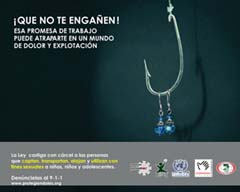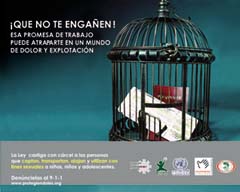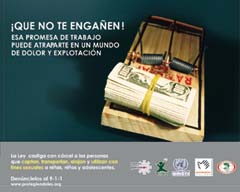
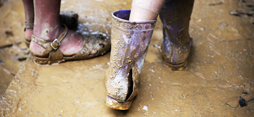
Action Programme against Trafficking in Minors for Sexual Purposes
Activities in Costa Rica
The project was implemented in collaboration with the NGO Paniamor.
This was the continuation in Costa Rica of the regional project "Strengthening the Protection
of Children from Commercial Sexual Exploitation", funded by the European Commission and Irish AID (2003 - 2005).
Information system to follow up on crimes relating to sexual exploitation of children and trafficking in children for sexual purposes (SISCESCO)
With the aim of strengthening the capacities of Public Prosecutors in responding to the problem of trafficking in persons, the project provided for the realization of an information system (SISCESCO) on legal cases and victims of trafficking to be implemented within the judicial system, and specifically in the eight Public Prosecutors' Offices in charge of investigating cases of sexual exploitation of children and trafficking in children for sexual purposes.
SISCESCO is an important tool for data collection that can help the Prosecutors' Offices to build stronger cases against sexual exploiters and improve their investigating skills and strategies. It will also support the Office of the Attorney General in drawing up policies against these crimes [more].
Training sessions for immigration personnel and border police on existing norms and procedures concerning trafficking in children for sexual purposes
In order to strenghten the capacity of immigration personnel and border police in Costa Rica on how to address cases of trafficking in children for sexual purposes in the light of the existing legislation and procedures governing the matter, the Action Programme delivered 10 two-day training sessions for immigration officers and border police working on all borders of the Country, covering 100% of the personnel involved. Moreover, four of this trainings were delivered on a binacional basis, involving personnel from Nicaragua and Panama and representing the first training sessions of this kind orgainzed in Costa Rica.
The training sessions were delivered utilizing the Manual on Norms and Procedures related to trafficking in children for sexual purposes in Central America, developed during the previous project financed by Irish Aid and the European Commission. This Manual was approved by the Central American Coalition of Directors of Immigration (OCAM) and indicated as "The" Manual for training of Immigration personnel and border police in trafficking in minors issues. During the Action Programme against Trafficking in Minors for Sexual Purposes, a methodology booklet was produced by UNICRI and its partners for training facilitators, intended to be used in conjunction with the existing Training Manual.
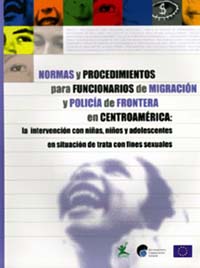
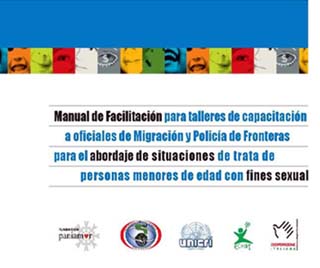
Web page specialized in trafficking in children for sexual purposes and sexual tourism (www.protegiendoles.org)
The website was produced to provide information and raise awareness on child sexual exploitation linked with travel and tourism and on trafficking in children for sexual purposes.
The website contains, among the others:
- a list of hotels, car rentals and taxi companies affiliated to the Code of Conduct against sexual exploitation of minors;
- information on the Code of Conduct and how to enrol;
- information on how to report a case;
- a form to report cases of trafficking in minors and CSEC;
- awareness raising information;
- a virtual library on legislation regarding the protection of children from commercial sexual exploitation and trafficking in children for sexual purposes, together with technical materials on the issue.
Public information campaign on trafficking in children for sexual purposes
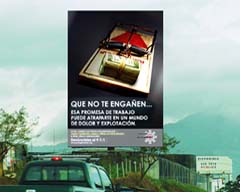
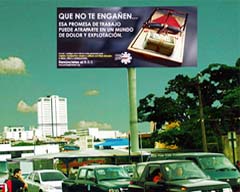
The public information campaign, targeted to adolescents, raised awareness about the issue of minors being trafficked and sexually exploited, and promoted the involvement of communities in the fight against these crimes.
Billboards were designed and placed at strategic points on the border between Costa Rica and Panama to inform and deter the trafficking in children for sexual purposes.
A spot was aired on prime-time television on all major TV channels for two months and a radio spot, that complemented the TV spot, was aired for three months on nine different radio stations, to reach even remote areas of the Country.
You can download a divx version of the spot here.
A bookmark was created to raise awareness in the population at risk. The bookmark was handed out to adolescents when the passport office issued their travel documentation.



A set of three different stickers was also posted up in the windows of all immigration offices.
Fourteen movable billboards, containinig the same campaign message, circulated on buses for four months in the areas identified by the project as the most vulnerable trafficking routes.
